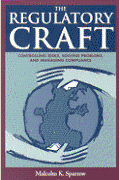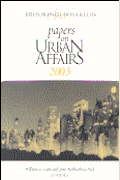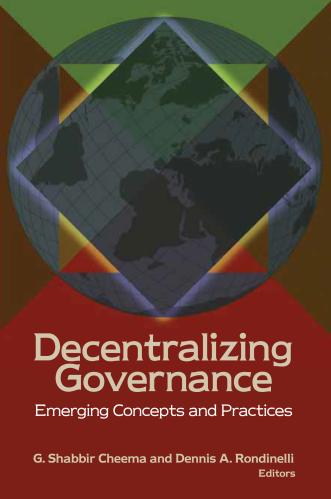“This has been amateur hour at the White House,” Senior Fellow Elaine Kamarck said at a recent Brookings event on the first 100 days of Donald Trump’s presidency. “We have elected the least experienced person ever to hold the office of the presidency.” In three panels, Brookings experts and moderators from news organizations discussed national security policy, the future of tax reform and regulatory policy, and public management under the Trump administration. The clips below are highlights of the event, hosted by the Governance Studies program as the eighth annual A. Alfred Taubman Forum on Public Policy. For full video visit the event’s web page. For more analysis of President Trump’s new administration, see also posts on the Fix Gov blog and the weekly series on Brookings Now, “What Brookings experts are saying.”
PANEL 1: PRESIDENT TRUMP’S NATIONAL SECURITY POLICY
Wall Street Journal senior writer Shane Harris moderated a panel of Brookings experts who included Susan Hennessey, Benjamin Wittes, and Leon Wieseltier.
Hennessey, a fellow in Governance Studies and managing editor of Lawfare, said she had “low expectations” of the new administration and while the emerging national security team has “excellent” people, the president seems to be relying on family and informal advisers. It is “national security by instinct instead of expertise,” she said. Watch:
“This is an area in which randomness is really quite scary and consequential,” Hennessey added.
“I’ve seen nothing in the past 100 days to make me think anything other than that we have a president who is almost incomprehensibly ignorant, with a serious narcissistic personality disorder, and a problem of impulse control,” Leon Wieseltier offered. “Most of the policies that I see coming from Trump are rather like his tweets, they are immediate expressions of something that he feels.” Wieseltier, the Isaiah Berlin Senior Fellow in Culture and Policy, observed that while previous presidents including Barack Obama and George W. Bush had centralized foreign policy decision-making in the White House, the new president has taken it “to an absolutely absurd place.” Watch:
Benjamin Wittes, a senior fellow in Governance Studies and editor-in-chief of Lawfare, observed that “This is not a president who is functioning in the normal way that we expect presidents to function. And,” he continued, “whether you attribute that to something positive or to something negative, I actually think the best way to understand it … is clinical.” Wittes elaborated on President Trump’s personal obsessions, ego, and narcissism.
Wittes also explained how the president’s flip-flops on issues such as whether or not China is a currency manipulator means that “he’s created an environment in which the words of the president of the United States don’t mean anything at all. And that is a really dangerous proposition.” Watch:
PANEL 2: THE FUTURE OF TAX REFORM AND REGULATION POLICY
Ben Casselman, senior editor and chief economics writer at FiveThirtyEight, moderated a panel that included Brookings tax and regulation policy experts Louise Sheiner, Philip Wallach, and Vanessa Williamson.
Casselman asked Louise Sheiner, senior fellow and policy director of the Hutchins Center on Fiscal and Monetary Policy, why tax reform is so difficult. “Tax reform sounds easy until you start looking at the details,” she began. Watch:
Vanessa Williamson, fellow in Governance Studies and author of the new book “Read My Lips: Why Americans Are Proud to Pay Taxes,” offered her views on why Americans’ misconceptions about taxes is another obstacle to reform. Watch:
On regulatory policy, Senior Fellow Philip Wallach addressed the question of whether and how much the existing tax and regulatory structure is holding back the U.S. economy. “I think there should be a bipartisan space to do some regulatory pruning that would be very productive in helping the US economy,” Wallach said. Watch:
Casselman also asked the panelists how likely they thought it would be to see fundamental change in tax and regulatory policy versus incremental pieces. “On tax reform,” Sheiner answered, “I think a really major reform is unlikely.” Williamson agreed, saying that the most likely scenario is a “substantial tax cut that is not tax reform” and that will be sunsetted. On regulatory policy, Wallach believed that the Republican majority will be able to get a major law passed, such as the Regulatory Accountability Act.
PANEL 3: PUBLIC MANAGEMENT UNDER THE TRUMP ADMINISTRATION
The forum concluded with a panel moderated by Karen Tumulty, national political correspondent for the Washington Post. The panelists included Governance Studies scholars William Galston, John Hudak, Elaine Kamarck, and Nicol Turner-Lee.
Kamarck, senior fellow and director of the Center for Effective Public Management, put the new president’s performance thus far into historical context. “Most modern presidents,” she said, “don’t know the whole job, nobody does. But they come in knowing something.” She continued:
To come in knowing nothing, nothing, is a really big, big problem. And it creates a learning curve that is overwhelming. And if you add to that a personality that is used to flying by the seat of his pants and using his instincts, this is a disaster. I don’t think he has shown any ability to learn.
“We have elected the least experienced person ever to hold the office of the presidency,” Kamarck added, noting that the average number of years of prior public experience of modern presidents (since 1900) is 12. Watch:
Galston, the Ezra K. Zilkha Chair and senior fellow in Governance Studies, cautioned about “drawing a straight line from the data points”—from day one to day 100 and beyond of the Trump presidency— “because in the last analysis, I think that Trump’s desire to be a winner may in fact overcome all his other instincts.” But Galston also criticized President Trump’s deal-making approach to governing, in which everything is thought to be negotiable. But, as in the recent case of a suggestion to trade money for Affordable Care Act subsidies for funds to build a U.S.-Mexico border wall, Galston asked, “What does Mr. Art of the Deal do when confronted with the politics of no deal?” Watch:
Turner-Lee, a fellow with the Center for Technology Innovation who studies issues ranging from civil society to broadband access, noted that although polls show that President Trump’s base of supporters continue to think of him as a strong leader, the majority of people “feel discredited and alienated from the political process.” The first 100 days, Turner-Lee said, “indicate the type of chaos and turmoil we will be in in civil society if we continue down this pathway.” Watch:
“Getting elected and governing are two different things,” Senior Fellow John Hudak said. He continued that:
The least experienced president in American history came to office and surrounded himself with people who lacked experience in federal public management, federal policy making, [and] federal lawmaking. And so that creates a perfect storm for Mr. Trump. His lack of experience is not a recipe for automatic failure, but when you put yourself in a mix of individuals who don’t complement the weaknesses that you have, then you get the situation that you have.
But Hudak added that the biggest issue stemming from the president’s lack of experience with public management is that he will not know how to use federal agencies or work with Congress to achieve his agenda. Not making appointments to key federal agency positions and not having a skilled legislative team is “malpractice” to Trump’s own supporters, Hudak said. Watch:
Full video of all three panels at the forum can be watched here.





Commentary
VIDEO: Brookings experts on President Trump’s first 100 days
April 27, 2017